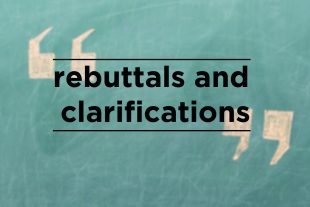
Yesterday (19 February), the Guardian published an article, "People didn’t vote for my son to be separated from his mother”.
In the article, the author says that she fears being rejected for settled status and being deported as she is a full-time carer. The article also alleges that applicants will only be able to apply to the EU Settlement Scheme using an Android device and for those not online they will be able to get help at one of 13 centres around the UK. The article further asserts that the Home Office is struggling to keep up with applications and demanding additional paperwork.
The article is based on misinformation.
We have clarified a number of the issues raised in the article below.
1) Accusation: Applicants who are deemed economically inactive and unemployed because, for instance, they stay at home to care full-time for a relative risk not qualifying for status
This is not true.
We have made clear that EU citizens will not be refused status under the EU Settlement Scheme because, for example, they are economically inactive or they do not hold private health insurance.
The EU Settlement Scheme application only has three core requirements – that you are an EU citizen (or family member of one), that you are living here, and that you are not a serious or persistent criminal.
2) Accusation: Applicants will only be able to apply to the EU Settlement Scheme using an Android device
This is not true.
Individuals will be able to use any desktop, laptop or mobile device to make an application. It is only during this current phase of testing that people need to use the Identity Document Check app to verify their identity, which is currently only available on Android devices.
When the Scheme is fully live at the end of March, use of the app will be entirely optional – it is just one of several ways people will be able to verify their identity, including by post or face to face at an application centre.
3) Accusation: Applicants will only be able to get help at one of 13 centres around the UK
This is not true.
Once the system is fully open, there will be further routes available to have identity documents checked, including a postal route for submitting ID evidence and over 50 locations where applicants can have their passport scanned and verified. Assisted digital support and a dedicated telephone advice and support service are also available.
4) Accusation: You must provide evidence for every single holiday or work-related trip abroad
This is not true.
An applicant only needs to show that that they have been resident in the UK, they do not need to account for every absence. And automatic checks against Government data are working well. In 79 per cent of concluded cases, applicants successfully completed their application without the need to provide any further evidence of residence themselves.
A wide range of residence documentation may be submitted, reflecting the variety of people’s individual circumstances, and we will work with applicants without official documentation to establish their eligibility under the scheme from the material they have.
5) Accusation: The Home Office is struggling to keep up with applications.
This is not true.
Over 100,000 individuals have successfully applied in the test phases and we received over 8,000 on the first day of public testing.
During the second phase of private testing, 69% of decided cases were processed in three working days, with 81% processed within a week.
The Home Office has already invested heavily in the Scheme, developing a new case working system, creating an app that can be used to verify identity remotely, establishing automated links with other Government departments, creating a new resolution centre to resolve queries and have put in place 1,500 caseworkers to work on EU Settlement Scheme applications. We will continue to monitor resources once the scheme is fully rolled out.
Home Office support for vulnerable EU citizens
We are working in partnership with a wide variety of organisations including vulnerable group representatives and local authorities that have expertise and strong local links with vulnerable EU citizens in communities throughout the UK to make sure we reach everyone. No-one will be left behind.
On 25 October 2018, we announced that up to £9 million of funding will be made available to voluntary and community sector organisations to help us reach more vulnerable or at-risk EU citizens and their family members directly. The grant funding will provide those voluntary and community sector organisations wishing to help EU citizens with the opportunity to do so.
Bids for applications closed on 1 February 2019. We will collate and evaluate the applications and announce which organisations have received funding by the end of March, in time for the full launch of the EU Settlement Scheme.
To help vulnerable applicants who may struggle to apply online we offer a dedicated telephone advice service on the number 0300 123 7379 and have put in place 1,500 caseworkers to work on EU Settlement Scheme applications. In addition, we offer an assisted digital service for EU citizens in the UK who do not have the appropriate access, skills or confidence to complete the online form. We are also translating communications materials into all 23 EU languages and Welsh. Alternative formats can also be requested.
